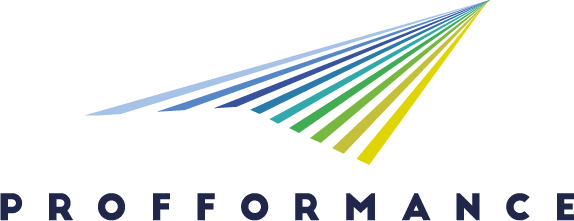EEatTUGraz
Fundamentals of Electrical Engineering @ TU Graz - A practical exercise designed for students in their first year
- 06 – Information and Communication Technologies
- 07 – Engineering, manufacturing and construction
1. Student-centered course design
In the exercise course "Fundamentals of Electrical Engineering," the requirements on a first-semester course were systematically analyzed, and concepts were established in an iterative process. All stakeholders are always involved in generating the most constructive and broadest possible range of opinions in the course development. The current project thus represents an overall concept of a first-semester exercise course. The heterogeneity of the different educational backgrounds of the first-year students proved to be the most significant challenge. We meet this challenge through an intensive feedback culture and a broad range of teaching materials geared to the different requirements. Additionally, a focus is given to students with deficits in their previous education and the promotion of gifted students and those with previous education, relevant to the subject. In particular, an anonymous and well-moderated communication platform facilitates and encourages students to ask questions and offer constructive criticism. The course is taught via a peer-assisted learning scheme in small groups of 25 students. Out of the best students of the previous years, so-called study assistants are recruited, guiding one group through the whole course. This peer-teaching approach helps the students to overcome their inhibition to ask and encourage a fruitful discussion culture already at the beginning of their studies. Great importance is attached to the didactic training and the professional and personal development of the study assistants. Also, higher semester courses benefit from highly educated study assistants. In addition, heed is also paid to the introductory phase of studies and the formation of joint learning groups is supported. Three YouTube-playlists have been produced to help the students in their learning activities. One covers the theoretical background; the other ones give a systematic approach to solve exercises and simulations taught in the course. Over 30.000 views show the success of this initiative. Since the project started in 2017/18, the course's failure rate has been decreased from 50% to about 25%. Surveys proved that in 2020/21, 85% of the students feel well prepared for the following courses and understand the fundamental content of the curriculum. Both are outstanding numbers for a first-year course in a technical degree program. With the integrated feedback system and the ongoing recruiting process, the project's sustainability is ensured.
Methodology
Tools, equipment, technology used
Outcomes and outputs, main results
Lessons learnt
Adaptability and sustainability of the best practice (for other institutions)
Promotion of best practice
Scope and impact
- Course/department level
- Faculty level
- Institutional level
- Cross-institutional level
- National level
- EU/EHEA/International level
6.1 Digitalization
- Outstanding, innovative, excellent practices of online / blended / hybrid learning
- Innovative, novel methodology in using digital tools/devices in teaching
- Digital skills development and assessment both general and profession-related, embedded in course design, in teaching and assessment
- Novel digital solutions (tools, frameworks, devices, tasks to enhance efficiency and motivation)
- Other:
YouTube videos, LTspice simulations
Reasoning: In the course we use Discord as a central communication platform, where students can interact with each other and our team. We provide a low-threshold support offer which increases participation significantly. Furthermore, learning sessions hosted on Discord provide a central support pillar for students in need. Additionally, YouTube videos (theory, examples and simulation via LTspice) enable asynchronous learning. Finally, tablets are used for a situation dependent hybrid teaching format.
6.2 Internationalization
- Innovative practices of blended mobility
- Courses offered to international multicultural students both online and offline
Reasoning: We implemented hybrid lessons where the lecturer simultaneously presented in class and streamed the content. Via microphone, feedback tools, and chat, online participants could collaborate like being in the lecture room. The YouTube-playlists make it possible to repeat the content several times at your speed, hence, students whose native language is not German are able to follow as well. Other English-speaking playlists make the institute's teaching content freely available.
6.3 Inclusion and diversity, universal design
- Inclusive course design, universally designed divers activities to meet special students' needs
- Universally designed teaching material - adjustable for special needs
- Innovative teaching methodology for inclusion and meet diverse student needs
- (Innovative) use of devices and tools for inclusion
- Alternative, flexible assessment methods for students with special needs
Reasoning: Special attention is drawn to mixing up students in heterogeneous teams according to their prior education – we therefore support team building and teamwork and motivate them to help each other. A learning material mix (homework, assessment sheet, extra examples, ...) aimed at all types of learners and students with different educational backgrounds takes care of all student groups. With an anonymous platform, we motivate the students to discuss and offer a low-threshold communication service.
6.4 Sustainability
- Teaching material contains profession related sustainability aspects
Reasoning: We aim to build a foundation in electrical engineering – a subject area which is omnipresent regarding green energy. Furthermore, we focus on providing quality education and learning opportunities for all. In the course this is reflected by a broad range of teaching material (e.g. YouTube videos) as well as a focus on equality and fairness. Additionally, we explain why the topic is relevant for future applications. For the homework a digital format is used saving ~6000 sheets of paper per year.
3.3 Public contact datas
| Name | Email address | Website |
|---|---|---|
| Paul Baumgartner | paul.baumgartner@tugraz.at | https://www.tugraz.at/institute/igte/teaching/pfel-english/ |

